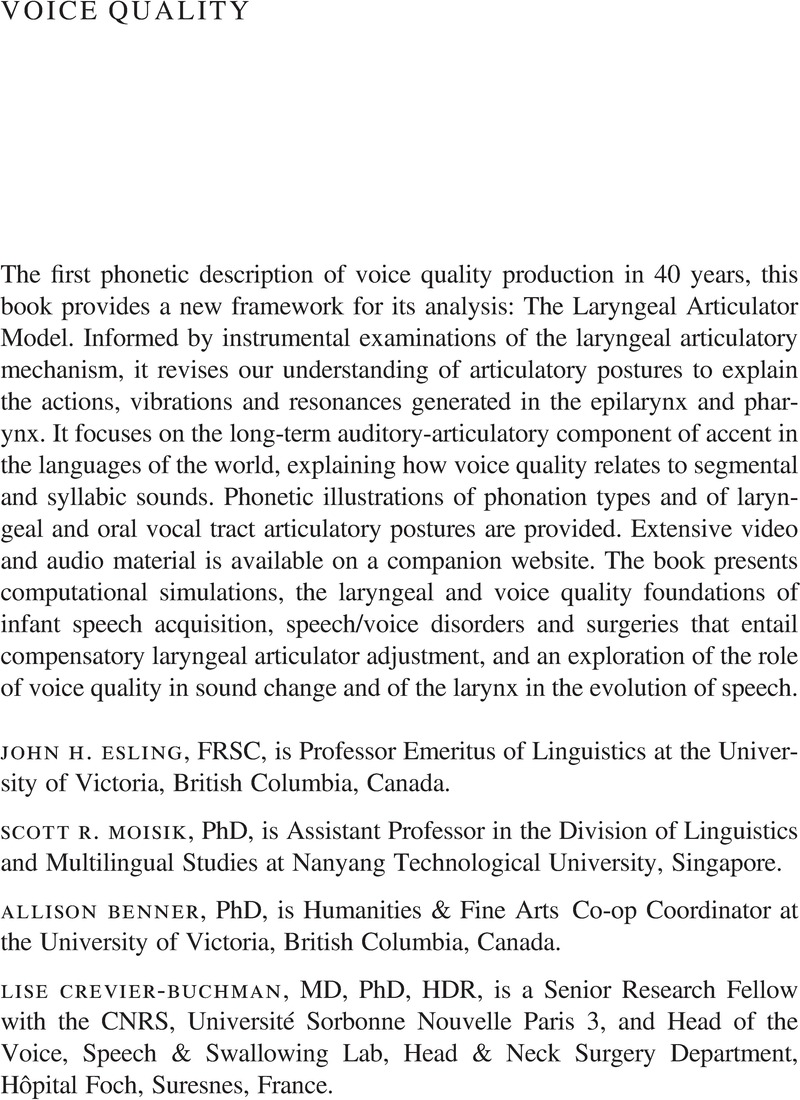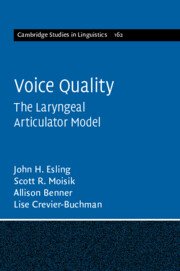Book contents
- Voice Quality
- Series page
- Cambridge Studies in Linguistics
- Voice Quality
- Copyright page
- Contents
- Figures
- Tables
- Preface
- Acknowledgements
- Abbreviations
- 1 Voice and Voice Quality
- 2 Laryngeal Voice Quality Classification
- 3 Instrumental Case Studies and Computational Simulations of Voice Quality
- 4 Linguistic, Paralinguistic, and Extralinguistic Illustrations of Voice Quality
- 5 Phonological Implications of Voice Quality Theory
- 6 Infant Acquisition of Speech and Voice Quality
- 7 Clinical Illustrations of Voice Quality
- 8 Laryngeal Articulation and Voice Quality in Sound Change, Language Ontogeny and Phylogeny
- References
- Author/Artist Index
- Subject Index
- References
Series page
Published online by Cambridge University Press: 21 June 2019
- Voice Quality
- Series page
- Cambridge Studies in Linguistics
- Voice Quality
- Copyright page
- Contents
- Figures
- Tables
- Preface
- Acknowledgements
- Abbreviations
- 1 Voice and Voice Quality
- 2 Laryngeal Voice Quality Classification
- 3 Instrumental Case Studies and Computational Simulations of Voice Quality
- 4 Linguistic, Paralinguistic, and Extralinguistic Illustrations of Voice Quality
- 5 Phonological Implications of Voice Quality Theory
- 6 Infant Acquisition of Speech and Voice Quality
- 7 Clinical Illustrations of Voice Quality
- 8 Laryngeal Articulation and Voice Quality in Sound Change, Language Ontogeny and Phylogeny
- References
- Author/Artist Index
- Subject Index
- References
Summary

- Type
- Chapter
- Information
- Voice QualityThe Laryngeal Articulator Model, pp. iiPublisher: Cambridge University PressPrint publication year: 2019



